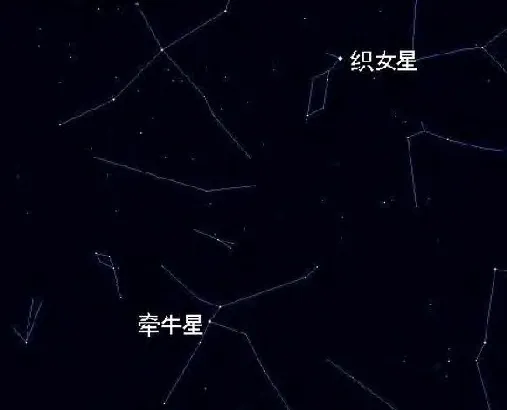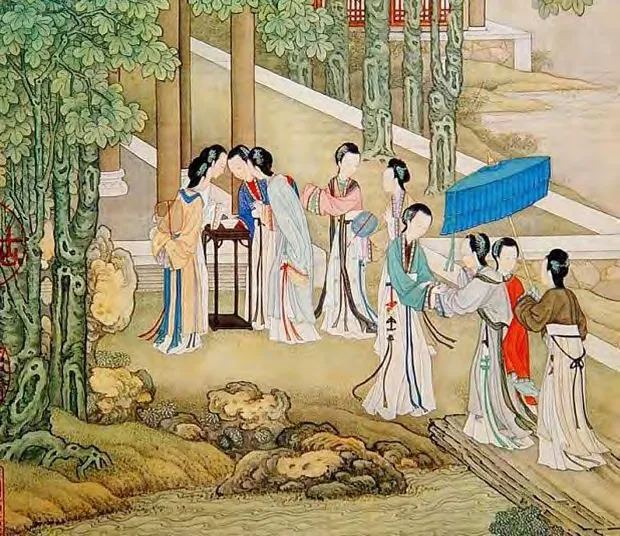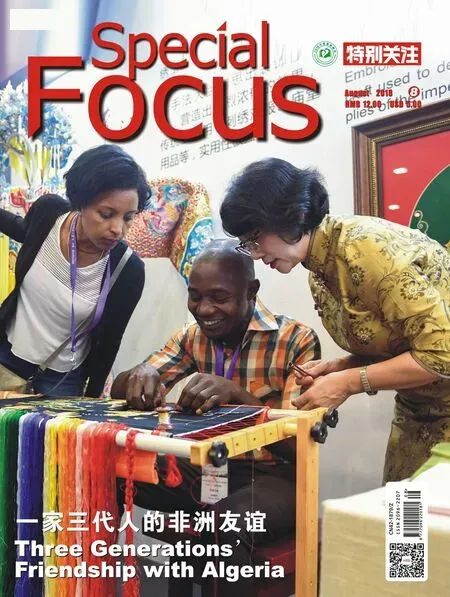Qixi Festival: Chinese Valentine’s Day
2018-08-31ByZengPengling
By Zeng Pengling
Qixi Festival, Chinese Valentine’s Day, is a special day of romance and sweetness for those who are in love. It is also the only day of reunion for the Cowherd and the Girl Weaver, a man-fairy couple from a Chinese legend,who met with each other on the Magpie Bridge in the moonlight.
The seventh day of the seventh lunar month of the lunar calendar is called Qixi. Because the main activity on this day is qiqiao(a ritual ceremony to pray for smartness and skillfulness), and the participants in the rite are mostly women, it is also called Qiaoqiao Festival or Girl’s Day.As one of the traditional festivals,Qixi has been passed down for thousands of years, which demonstrates Chinese people’s longing for love and passion in life.
Qixi Festival dates back to the Han Dynasty. In ancient China,when it was Qixi Festival, women would call on their bosom friends,show their thread work to each other, and pray for their families to be happy and for good luck.
The origin of this festival comes from the worship of nature and the stars. Later this is incorporated into the legend of the Cowherd and the Girl Weaver,and thus Qixi became a festival for love.

七夕——中国情人节
文/曾鹏凌
七夕,一个氤氲着浪漫与甜蜜的节日。岁月匆匆,“一处相思,两处闲愁”,化为一载相思浓。千年等待的牛郎,殷殷期盼的织女,在这柔情似水的七月七日夜,相会鹊桥,互诉衷肠。七夕相聚的甜蜜,如那坛酝酿千年的桂花酒,醉了夜色,也醉了月光下的芸芸众生。
每年农历的七月初七,称为七夕,又称乞巧节、女儿节。七夕是中国传统节日之一,已传承千年,它积淀了中国人的感情向往与对生活的诠释。
七夕始于汉朝,因为该节日主要活动为“乞巧”,活动参与者多为女性,故又称“乞巧节”、“女儿节”。在古代中国,每至七夕,妇女会访闺中密友,切磋女红技艺,乞巧祈福。
七夕源于中国人对自然和星辰的崇拜,后来又融入了牛郎织女传说,成为象征爱情的节日。
传说,孤儿牛郎与一头老牛相依为命,自耕自食。有一天,织女和诸仙女下凡嬉戏,在河中沐浴。牛郎与织女邂逅,两人互生爱意,不久结为夫妻。婚后,他们男耕女织,育一儿一女,生活美满幸福。不料王母娘娘查知此事,命令押解织女回天庭受审。牛郎家中那头老牛很通灵性,它触断头上的犄角,变成一只小船,让牛郎挑着儿女,乘船上天追赶。
眼看要追上织女,王母娘娘拔下头上的金钗,在天空划出一条波涛滚滚的银河。牛郎无法渡过银河,只能在河边与织女遥望对泣。他们坚贞的爱情感动了喜鹊,无数喜鹊飞来,搭成一道跨越天河的鹊桥,让牛郎织女在桥上相会。王母娘娘无奈,只得允许牛郎织女每年七月七日,可于鹊桥会面一次。这便是牛郎织女的爱情传说,也是中国古代民间四大爱情故事之一。
In the legend, there was an orphan, named Dong Yong. He lived together with an old ox,and was thus called Cowherd.One day, the Girl Weaver, one of seven sister fairies, and her sisters danced and bathed in a river. The Cowherd met the Girl Weaver unexpectedly, and the two fell in love and soon became husband and wife. After marriage, the Cowherd did the farm work and the Girl Weaver engaged in spinning and weaving,raising their daughter and son.Unfortunately, their marriage did not obtain permission from the Fairy Mother Queen, mother of the Girl Weaver. Instead, the Fairy Mother Queen demanded the Girl Weaver to end her relationship with the Cowherd and sent guards to bring her back to the Celestial Land. The intelligent old ox of the Cowherd cracked the horns off its head,and they turned into a small flying boat into which the Cowherd could put the children and catch up with the Girl Weaver.
When the Cowherd was about to meet with his wife, the Fairy Mother Queen took out a golden hair pin which she cast back to make the impassable Milky River in the sky. The Cowherd could not cross the river and could only watch his wife from the riverside,full of tender affection. Their touching love moved the magpies so that thousands of magpies flew to the Milky River and the Magpie Bridge was formed. It was there the Cowherd and the Girl Weaver met again. The Fairy Mother Queen could do nothing but allow the Cowherd and the Girl Weaver to meet on the seventh of the seventh lunar month of every year. The love story of the Cowherd and the Girl Weaver is one of the Four Love Legends in China.
The Cowherd and the Girl Weaver can only meet once a year, so Qixi symbolizes pure and everlasting love of human kind. Through multi-ethnic exchanges, the legend of the Cowherd and the Girl Weaver has also spread to areas inhabited by ethnic minorities in China,and influenced the culture in Japan, North Korea, Vietnam, the Philippines, Indonesia, Malaysia,and other Asian countries.
During the Tang and Song Dynasties, Qixi Festival gained popularity among the people.There are nearly two hundred classic poems on the theme of Qixi. For example, in the Tang Dynasty, the great poet Du Mu once wrote, “The steps seem stepped in water when cold grows the night, she lies watching heart-broken stars shed tears in the sky.” While Qin Guan in Song Dynasty chanted, “Their tender love flows like a stream;this happy date seems but a dream. Can they bear a separate homeward way? If love between both sides can last for aye, why need they stay together night and day?” During the Ming and Qing Dynasties, operas likeMarriage of the Fairy PrincessandThe Palace of Eternal Youthhave been produced and played.

星河中的织女星与牵牛星 Vega and Altair in the galaxy

古代妇女于七夕会访、乞巧In ancient times, women would pay visit to their friends, and qiqiao, which is an activity to pray for smartness and skillfulness on Qixi Festival.
牛郎织女一年只能在七夕这天相会一次,因此,七夕象征着坚贞不渝的爱情。牛郎织女的传说,也随着民族交流,传至西北、东北、西南的各少数民族聚居区,并影响了日本、朝鲜、越南、菲律宾、印尼、马来西亚等国家。
唐宋时期,七夕节日最为盛行。以七夕为主题的诗词近两百首。如唐代杜牧诗云:“天阶夜色凉如水,坐看牵牛织女星。”宋代秦观词云:“柔情似水,佳期如梦,忍顾鹊桥归路!两情若是久长时,又岂在朝朝暮暮!”明清时,出现了《天仙配》、《长生殿》等七夕节令戏。
